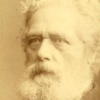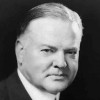Good impulses are naught, unless they become good actions.
[Les bons mouvements ne sont rien, s’ils ne deviennent de bonnes actions.]Joseph Joubert (1754-1824) French moralist, philosopher, essayist, poet
Pensées [Thoughts], ch. 5 “Des Passions et des Affections de l’Âme [On the Soul],” ¶ 75 (1850 ed.) [tr. Calvert (1866)]
(Source)
Quotations about:
words and deeds
Note not all quotations have been tagged, so Search may find additional quotes on this topic.
He that gives good advice, builds with one hand; he that gives good counsel and example, builds with both; but he that gives good admonition and bad example, builds with one hand and pulls down with the other.
The teachers of the law and the Pharisees sit in Moses’ seat. So you must be careful to do everything they tell you. But do not do what they do, for they do not practice what they preach. They tie up heavy, cumbersome loads and put them on other people’s shoulders, but they themselves are not willing to lift a finger to move them. Everything they do is done for people to see: They make their phylacteries wide and the tassels on their garments long; they love the place of honor at banquets and the most important seats in the synagogues; they love to be greeted with respect in the marketplaces and to be called ‘Rabbi’ by others.
The Bible (The New Testament) (AD 1st - 2nd C) Christian sacred scripture
Matthew 23:2-7 (NIV)
(Source)
Alt trans:
- "The scribes and the Pharisees sit on Moses' seat; so practice and observe whatever they tell you, but not what they do; for they preach, but do not practice. They bind heavy burdens, hard to bear, and lay them on men's shoulders; but they themselves will not move them with their finger. They do all their deeds to be seen by men; for they make their phylacteries broad and their fringes long, and they love the place of honor at feasts and the best seats in the synagogues, and salutations in the market places, and being called rabbi by men." [NRSV]
- "The scribes and the Pharisees sit in Moses' seat: All therefore whatsoever they bid you observe, that observe and do; but do not ye after their works: for they say, and do not. For they bind heavy burdens and grievous to be borne, and lay them on men's shoulders; but they themselves will not move them with one of their fingers. But all their works they do for to be seen of men: they make broad their phylacteries, and enlarge the borders of their garments, and love the uppermost rooms at feasts, and the chief seats in the synagogues, and greetings in the markets, and to be called of men, Rabbi, Rabbi." [KJV]
Promises may get Friends, but ’tis Performances that keep them.
Thomas Fuller (1654-1734) English physician, preacher, aphorist, writer
Gnomologia: Adages and Proverbs, #3957 (1732)
(Source)
It iz a darned sight eazier tew find six men who kan tell exactly how a thing ought tew be did than tew find one who will do it.
[It is a darned sight easier to find six men who can tell exactly how a thing ought to be done than to find one who will do it.]
Josh Billings (1818-1885) American humorist, aphorist [pseud. of Henry Wheeler Shaw]
Everybody’s Friend, Or; Josh Billing’s Encyclopedia and Proverbial Philosophy of Wit and Humor, “Puddin and Milk” (1874)
(Source)
But indeed Conviction, were it never so excellent, is worthless till it convert itself into Conduct. Nay properly Conviction is not possible ill then.
Thomas Carlyle (1795-1881) Scottish essayist and historian
Sartor Resartus, Book 2, ch. 9 (1831)
(Source)
He does not believe, that does not live according to his Belief.
Thomas Fuller (1654-1734) English physician, preacher, aphorist, writer
Gnomologia: Adages and Proverbs, #1838 (1732)
(Source)
Atheism is the theory that there is no God. Now one kind is a theoretical kind, where someone just sits down and starts thinking about it, and they come to a conclusion that there is no God. The other kind is a practical atheism, and that kind goes out of living as if there is no God. And you know there are a lot of people who affirm the existence of God with their lips, and they deny his existence with their lives. You’ve seen these people who have a high blood pressure of creeds and an anemia of deeds.
I have ever thought religion a concern purely between our god and our consciences, for which we were accountable to him, and not to the priests. I never told my own religion, nor scrutinised that of another. I never attempted to make a convert, nor wished to change another’s creed. I have ever judged of the religion of others by their lives: and by this test, my dear Madam, I have been satisfied yours must be an excellent one, to have produced a life of such exemplary virtue and correctness. For it is in our lives, and not from our words, that our religion must be read. By the same test the world must judge me.
Thomas Jefferson (1743-1826) American political philosopher, polymath, statesman, US President (1801-09)
Letter to Margaret Bayard Smith (6 Aug 1816)
(Source)
What a man believes may be ascertained, not from his creed, but from the assumptions on which habitually acts.
George Bernard Shaw (1856-1950) British playwright and critic
Man and Superman, “The Revolutionist’s Handbook,” “Religion” (1903)
(Source)
The gods help them that help themselves.
Aesop (620?-560? BC) Legendary Greek storyteller
Fables [Aesopica], “Hercules and the Wagoner” (6th C BC)
(Source)
Alternate translation: "Heaven only aided those who endeavoured to help themselves. It is in vain to expect our prayers to be heard, if we do not strive as well as pray." [tr. James (1848)]
KING: ’Tis well said again,
And ’tis a kind of good deed to say well.
And yet words are no deeds.William Shakespeare (1564-1616) English dramatist and poet
Henry VIII, Act 3, sc. 2, l. 195ff (3.2.195-197) (1613)
(Source)
What doth it profit, my brethren, though a man say he hath faith, and have not works? Can faith save him? If a brother or sister be naked, and destitute of daily food, and one of you say unto them, Depart in peace, be ye warmed and filled; notwithstanding ye give them not those things which are needful to the body; what doth it profit? Even so faith, if it hath not works, is dead, being alone. Yea, a man may say, Thou hast faith, and I have works: shew me thy faith without thy works, and I will shew thee my faith by my works.
The Bible (The New Testament) (AD 1st - 2nd C) Christian sacred scripture
James 2:14-18 (KJV)
(Source)
Alt. trans.:
- "What good is it, my brothers and sisters, if you say you have faith but do not have works? Can faith save you? If a brother or sister is naked and lacks daily food, and one of you says to them, “Go in peace; keep warm and eat your fill,” and yet you do not supply their bodily needs, what is the good of that? 17 So faith by itself, if it has no works, is dead. But someone will say, “You have faith and I have works.” Show me your faith apart from your works, and I by my works will show you my faith." (NRSV)
- "My friends, what good is it for one of you to say that you have faith if your actions do not prove it? Can that faith save you? Suppose there are brothers or sisters who need clothes and don't have enough to eat. What good is there in your saying to them, “God bless you! Keep warm and eat well!”—if you don't give them the necessities of life? So it is with faith: if it is alone and includes no actions, then it is dead. But someone will say, “One person has faith, another has actions.” My answer is, “Show me how anyone can have faith without actions. I will show you my faith by my actions.” " (GNT)
We live in deeds, not years:
In thoughts, not breaths;
In feelings, not in figures on a dial.
We should count time by heart-throbs.
He most lives
Who thinks most, feels the noblest, acts the best.Philip James Bailey (1816-1902) English poet, lawyer
Festus, Sc. “A Country Town – Market-place – Noon” [Festus] (1839)
(Source)
Often misattributed to Aristotle.
One time I figured out this: if you aren’t brave, it doesn’t matter what other virtues you have, because you aren’t going to act them out. What good does it do to be able to see truth if you’re too chickenshit to act on the basis of what you see? I finally reduced all human virtues to one: bravery.
I have been a selfish being all my life, in practice, though not in principle.
Without courage, wisdom bears no fruit.
[Sin valor es estéril la sabiduría.]
Baltasar Gracián y Morales (1601-1658) Spanish Jesuit priest, writer, philosopher
The Art of Worldly Wisdom [Oráculo Manual y Arte de Prudencia], § 4 (1647) [tr. Maurer (1992)]
(Source)
(Source (Spanish)). Alternate translations:
Knowledge is barren, if Valour do'nt accompany it.
[Flesher ed. (1685)]
Knowledge without courage is sterile.
[tr. Jacobs (1892)]
Without courage, the mind is dead.
[tr. Fischer (1937)]
Say nothing of my religion. It is known to God and myself alone. Its evidence before the world is to be sought in my life: if it has been honest and dutiful to society the religion which has regulated it cannot be a bad one.
Thomas Jefferson (1743-1826) American political philosopher, polymath, statesman, US President (1801-09)
Letter to John Adams (11 Jan 1817)
(Source)
Instructions he gave to a biographer.
We must become the change we want to see.
Mohandas Gandhi (1869-1948) Indian philosopher and nationalist [Mahatma Gandhi]
(Attributed)
Variants:Almost always attributed to Gandhi, but not found in any of his published works. More discussion here.
- "Be the change you wish to see in the world."
- "You must be the change you wish to see in the world."
VOLUMNIA: Action is eloquence.
William Shakespeare (1564-1616) English dramatist and poet
Coriolanus, Act 3, sc. 2, l. 95 (3.2.95) (c. 1608)
(Source)
Ours is a practical people, to whom ideals furnish the theory of political action, upon which they want not only firm assurance, but also effective practice. They want programmes, but they want action to flow from them. They want constructive common sense. They want the development of the common will, not the views of a single individual. They are beginning to realize that words without action are the assassins of idealism.
After all, when the day of judgement comes we shall be examined about what we have done, not about what we have read; whether we have lived conscientiously, not whether we have turned fine phrases.
[Certe adveniente die judicii, non quæretur a nobis quid legimus, sed quid fecimus; nec quam bene diximus, sed quam religiose viximus.]
Thomas à Kempis (c. 1380-1471) German-Dutch priest, author
The Imitation of Christ [De Imitatione Christi], Book 1, ch. 3, v. 5 (1.3.5) (c. 1418-27) [tr. Knox-Oakley (1959)]
(Source)
(Source (Latin)). Alternate translations:
At the day of judgment it shall not be asked of us what we have read, but what we have done: nor how well we have said, but how religiously we have lived.
[tr. Whitford/Raynal (1530/1871)]
On the day of judgment we will not be asked what we have read, but what we have done; not how well we have discoursed, but how religiously we have lived.
[tr. Whitford/Gardiner (1530/1955)]
Assuredly at the day of judgment we shall not be examined how many bookes we have read, but how many good workes we have done; not how rhetorically we have spoken, but how religiously we have lived.
[tr. Page (1639), 1.3.22]
A Day of Judgment there will come, where in Measures will be taken very different form ours; when the Enquiry, upon which our Affairs must all turn, will be, not how much we have Heard or Read, but how much we have done; not how Eloquent our Expressions, but how Pure and Devout our Lives; how much our Manners, not our Capacity or Breeding, our Wit or Rhetorick, distinguished us from common Men.
[tr. Stanhope (1696; 1706 ed.)]
Assuredly, in the approaching day of universal judgment, it will not be enquired what we have read, but what we have done; not how eloquently we have spoken, but how holily we have lived.
[tr. Payne (1803)]
Truly, at the day of judgment we shall not be examined what we have read, but what we have done; not how well we have spoken, but how religiously we have lived.
[ed. Parker (1841)]
Assuredly, in the approaching day of judgment, it will not be inquired of us what we have read, but what we have done; not how eloquently we have spoken, but how holily we have lived.
[tr. Dibdin (1851)]
Verily, when the day of judgment comes, we shall not be asked what we have read, but what we have done; nor how well we have spoken, but how religiously we have lived.
[ed. Bagster (1860)]
Of a surety, at the Day of Judgment it will be demanded of us, not what we have read, but what we have done; not how well we have spoken, but how holily we have lived.
[tr. Benham (1874)]
Truly, at the day of judgment we shall not be examined as to what we have read, but as to what we have done; not as to how well we have spoken, but as to how religiously we have lived.
[tr. Anon. (1901)]
On the day of judgment, surely, we shall not be asked what we have read but what we have done; not how well we have spoken but how well we have lived.
[tr. Croft/Bolton (1940)]
Surely on coming to the day of judgment we shall not be asked what we have read but what we have done: not how well we talked but how religiously we lived.
[tr. Daplyn (1952)]
At the Day of Judgement, we shall not be asked what we have read, but what we have done; not how eloquently we have spoken, but how holily we have lived.
[tr. Sherley-Price (1952)]
When the day of judgment comes, we shall not be asked what we have read, but what we have done, not if we made fine speeches, but if we lived religious lives.
[tr. Knott (1962)]
When the day of judgement comes we will be asked not what books we read, but what deeds we did, not how well we spoke, but how religiously we lived.
[tr. Rooney (1979)]
Surely, when the day of judgment comes we shall not be asked what we have read but what we have done, not how well we have spoken but how devoutly we have lived.
[tr. Creasy (1989)]
All men want peace, but all do not seek those things that bring true peace.
[Pacem omnes desiderant: sed quæ ad veram pacem pertinent, non omnes curant.]
Thomas à Kempis (c. 1380-1471) German-Dutch priest, author
The Imitation of Christ [De Imitatione Christi], Book 3, ch. 25, v. 1 (3.25.1) [Christ] (c. 1418-27) [tr. Sherley-Price (1952)]
(Source)
(Source (Latin)). Alternate translations:
All men desire peace, but all men will not do that belongeth to peace.
[tr. Whitford/Raynal (1530/1871)]
All men desire peace, but all will not do what pertains to peace.
[tr. Whitford/Gardiner (1530/1955)]
All doe desire peace, but all care not for those things that appertain unto true peace.
[tr. Page (1639), 3.25.2]
But, though Peace be in every Man's Wishes, yet the Qualifications and Predispositions, necessary for procuring and preserving it, are the Care of very few.
[tr. Stanhope (1696; 1706 ed.), 3.29]
Peace is what all desire; but the things that belong to peace, few regard.
[tr. Payne (1803), 3.20]
Peace is what all desire, but all do not care for the things that pertain unto true peace.
[ed. Parker (1841)]
Peace is what all desire; but the things that belong to true peace, few regard.
[tr. Dibdin (1851), 3.23]
Peace is what all desire: but all care not for those things which appertain to true peace.
[ed. Bagster (1860)]
All men desire peace, but all do not care for the things which belong unto true peace.
[tr. Benham (1874)]
Peace is what all desire, but all do not care for the things that pertain unto true peace.
[tr. Anon. (1901)]
All men desire peace but all do not care for the things that go to make true peace.
[tr. Croft/Bolton (1940)]
All long for peace, but all do not care for what leads to true peace.
[tr. Daplyn (1952)]
Peace is something everyone longs for, but it is not everyone who troubles to find out what brings true peace.
[tr. Knox-Oakley (1959)]
Everyone desires peace, but not everyone cares for the things that bring real peace.
[tr. Knott (1962)]
Everybody wants peace; but not everybody cares about what really brings peace.
[tr. Rooney (1979)]
Everyone wants peace, but not all care for what leads to true peace.
[tr. Creasy (1989)]
All men desire peace, but few desire the things that make for peace.
[Common translation]




















